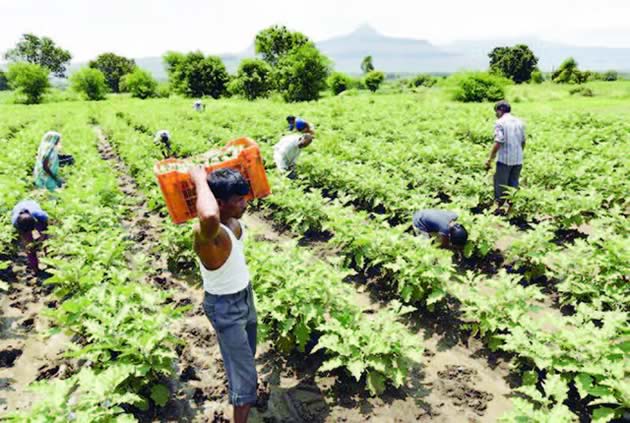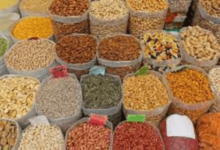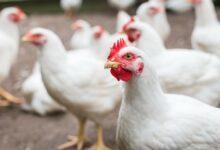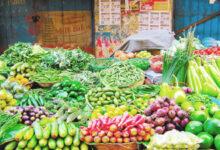
10 Factors Affecting Vegetable Production In Nigeria
Factors Affecting Vegetable Production In Nigeria – Nigeria is a leading producer of vegetables in West Africa, with a diverse range of crops grown in different regions of the country. Some of the most commonly grown vegetables include tomatoes, peppers, onions, cabbage, and cucumber. Despite the potential for high yields and profitability, vegetable production in Nigeria faces various challenges such as a lack of access to modern technology, limited access to finance, and poor infrastructure.Information Guide Nigeria
However, the government and private sector are working to improve the sector through initiatives such as the promotion of smallholder farming, the development of export markets, and the implementation of agricultural policies aimed at increasing productivity and competitiveness.
👉 Relocate to Canada Today!
Live, Study and Work in Canada. No Payment is Required! Hurry Now click here to Apply >> Immigrate to CanadaRead Also: 10 Factors Affecting Business Growth in Nigeria
What is a Vegetable?
A vegetable is a type of plant that is grown for its edible parts, such as leaves, stems, roots, or flowers. Examples of vegetables include carrots, broccoli, lettuce, and peppers. Vegetables are a rich source of vitamins, minerals, and other nutrients that are important for maintaining good health. They are also low in calories and high in fiber, which can help with weight management and digestion.Factors Affecting Vegetable Production
Read Also: 10 Factors Affecting Commercial Agriculture in Nigeria
Types of Vegetable
There are many types of vegetables, some common ones include:
- Leafy Greens – These include lettuce, spinach, kale, and collard greens. They are a good source of vitamins A, C, and K, as well as folate and iron.
- Cruciferous Vegetables – These include broccoli, cauliflower, cabbage, and Brussels sprouts. They are high in fiber and vitamins C and K and may have anti-cancer properties.
- Root Vegetables – These include carrots, beets, turnips, and potatoes. They are a good source of vitamins and minerals, such as vitamin A and potassium.
- Squash – This includes types such as zucchini, pumpkin, and acorn squash. They are high in vitamins A and C and contain potassium and fiber.
- Nightshades – These include tomatoes, eggplants, and peppers. They are high in vitamins A and C and contain antioxidants that may help protect against certain diseases.
- Peas – They are rich in protein, vitamin K, vitamin C, and vitamin A.
- Alliums – These include onions, garlic, leeks, and shallots. They are high in antioxidants and may have anti-inflammatory properties.
- Cucumbers – They are high in water content and contain Vitamin K, Vitamin C, and Vitamin A.
This is not an exhaustive list, there are many more types of vegetables like Asparagus, Artichokes, Okra, and many more. Each of them has unique nutritional and health benefits. 15 Best Industries in Nigeria
What is Vegetable Production?
Vegetable production refers to the growing and harvesting of various types of vegetables for consumption or commercial sale. This can include cultivating vegetables in traditional outdoor gardens, as well as in greenhouses or hydroponic systems. Vegetable production can be done on a small scale for personal consumption or on a large scale for commercial sale to supermarkets, restaurants, and other buyers. It also involves the use of proper agricultural techniques, such as crop rotation and irrigation, to ensure high yields and good-quality produce.
Read Also: 10 Factors Affecting Agricultural Extension Services In Nigeria
Types of Vegetable Production in Nigeria
There are several types of vegetable production in Nigeria, including: 20 Best Gas Cookers Pictures and their Prices in Nigeria
👉 Relocate to Canada Today!
Live, Study and Work in Canada. No Payment is Required! Hurry Now click here to Apply >> Immigrate to Canada- Subsistence Farming: This is the traditional form of farming where farmers grow vegetables for their consumption and to sell at local markets.
- Commercial Farming: This type of farming involves the large-scale production of vegetables for sale in both local and international markets.
- Urban Farming: This type of farming involves the production of vegetables in urban areas, using various techniques such as hydroponics and vertical farming.
- Agribusiness: This type of farming involves the production and sale of vegetables as part of a larger agricultural business.
- Organic Farming: This type of farming involves the production of vegetables without the use of synthetic pesticides or fertilizers.
- Greenhouse Farming: This type of farming involves the production of vegetables in a controlled environment, using greenhouses to protect crops from extreme weather conditions and pests. NYSC Portal
Read Also: 10 Factors Affecting Agricultural Mechanization in Nigeria.
Factors affecting Vegetable Production in Nigeria
Several factors can affect vegetable production in Nigeria, including:JAMB Portal
- Climate: The climate in Nigeria is unpredictable, with heavy rainfall and high temperatures that can affect crop growth and yield. JAMB Result
- Soil Fertility: Soil fertility is a major factor in vegetable production, as nutrient-poor soils can lead to poor crop growth and low yields.
- Pest and Disease: Pest and disease have a significant impact on vegetable production, as they can damage crops and reduce yields.
- Lack of Access to Markets: Many farmers in Nigeria lack access to markets, which makes it hard for them to sell their products and earn a profit.200 romantic love message for her
- Lack of Access to Credit: Many farmers in Nigeria lack access to credit, and it makes it difficult for them to purchase the necessary inputs (e.g. seeds, fertilizer, pesticides) to grow their crops.
- Lack of Extension Services: Many farmers in Nigeria lack access to extension services, which makes it difficult for them to learn about new technologies and best practices for growing vegetables.
- Poor Infrastructure: Poor infrastructure in Nigeria make it hard for farmers to transport their products to markets, which impacts their ability to sell their products and earn a profit.
- Lack of Storage Facilities: Many farmers in Nigeria lack access to storage facilities, which makes it difficult for them to preserve their products and prevent spoilage.
- Lack of Mechanization: Many farmers in Nigeria rely on manual labor to grow their crops, which can be labor-intensive and time-consuming.105 goodmorning messages
- Political Instability: Political instability in Nigeria make it difficult for farmers to plan for and invest in their farms, which can impact their ability to grow and sell their products.
Conclusion
Vegetable production in Nigeria is a significant sector of the country’s agriculture industry. The country has a diverse climate and soil conditions that allow for the cultivation of a wide variety of vegetables. However, there are several challenges that the sector faces, such as poor infrastructure, lack of access to modern technology, and inadequate funding.
Read Also: 10 Factors Affecting the Acceptance of Family Planning in Nigeria
Despite these challenges, Nigeria has the potential to increase its vegetable production and meet the growing demand for fresh produce both domestically and internationally. It is important for the government to invest in infrastructure and technology, as well as provide support and resources for farmers to improve yields and increase productivity.
Check JAMB Result
Check and Confirm: How much is Dollar to Naira today




